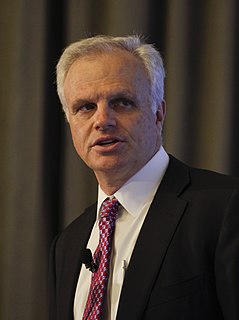A Quote by Thomas Friedman
You really do have to wonder whether a few years from now we’ll look back at the first decade of the 21st century — when food prices spiked, energy prices soared, world population surged, tornados plowed through cities, floods and droughts set records, populations were displaced and governments were threatened by the confluence of it all — and ask ourselves: What were we thinking? How did we not panic when the evidence was so obvious that we’d crossed some growth/climate/natural resource/population redlines all at once?
Quote Topics
Ask
Back
Century
Cities
Climate
Confluence
Crossed
Decade
Did
Displaced
Energy
Evidence
Few
First
Floods
Food
Governments
Growth
How
Look
Natural
Now
Obvious
Once
Ourselves
Panic
Population
Prices
Really
Records
Resource
Set
Some
Thinking
Threatened
Through
Were
Whether
Wonder
World
World Population
Years
Related Quotes
City farming is not only possible, it is the very definition of the kind of meaningful, sustainable innovation we will need to meet the grand challenges of the 21st century: climate change; population growth; ageing population; urbanization; rising demand for energy, food and water; poverty; and access to healthcare.
Fifty percent of the world's population lives in cities. In a couple of decades, 70 percent of the world's population will be living in cities. Cities are where the problem is. Cities are where the solution is, where creativity exists to address the challenges and where they have most impact. This is why, in 2005, the C40 was founded, an organization of cities that address climate change. It started with 18 cities; now it's 91. Cities simply are the key to saving the planet.
One by one, these governments came undone, and were forced into IMF tutelage (and national illegitimacy) by the careening oil prices, the debt imbroglio, and falling terms of trade. The last of these governments to fall were the Communist regimes of eastern Europe, which have now gone the way of other Third World countries. The second in the cascade of bifurcations is thus symbolized by 1989.
Some global hazards are insidious. They stem from pressure on energy supplies, food, water and other natural resources. And they will be aggravated as the population rises to a projected nine billion by mid-century, and by the effects of climate change. An 'ecological shock' could irreversibly degrade our environment.
I think our children will be living on floating cities, and they will look back on the 20th Century, when people lived in primitive governments founded in previous centuries, and they will be living on modular, sustainable, floating cities that we can't imagine now, that are based on the voluntary choice of citizens. I think we will have a marvellous world in the 21st Century.
One thing that's really interesting is not only the magnitude of the recent immigration into this country, but also its distribution and its investment in the country. About 9.3 percent of the population is now foreign-born [announced by the Census Bureau at over 10 percent a few days later]. What's really surprising is how well distributed those population groups are. Historically, we see new immigrants primarily on the coast and in a few big cities. I think the data are going to show a much wider distribution of the new population groups than we've experienced historically.
Through a lot of scientific and left-hemisphere thinking in the last 400 years, we've separated ourselves from nature, as if we were superior. We were looking at nature as a resource that we could manipulate. I think we're coming to a new understanding that it's just impossible. We are nature. We can't remove ourselves. We need to think more interdependently.
































